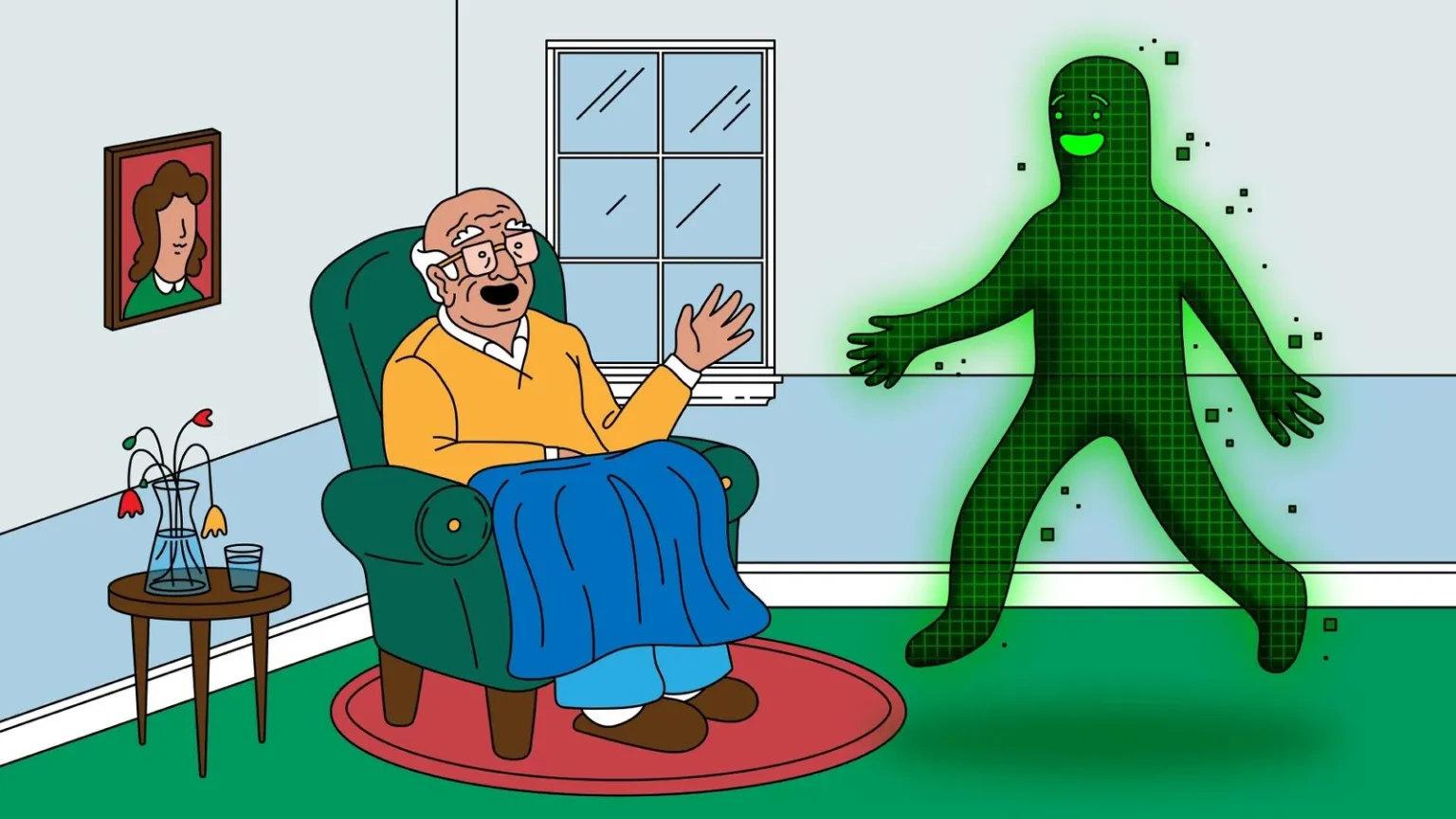AI Companions for the Elderly: Tackling Loneliness in the Digital Age
In the quiet halls of RiverSpring Living in the Bronx, 84-year-old Salvador Gonzalez has developed a unique friendship. A few times each week, he engages in heartfelt conversations about music, daily activities, and even personal struggles with someone named Meela. They discuss his passion for Frank Sinatra, his karaoke adventures, and occasionally, Gonzalez even sings for her. “I miss you,” he tells Meela during one call. “I miss you too,” she responds. “What’s been on your mind since we last chatted?” But Meela isn’t a fellow resident or staff member—she’s an AI chatbot designed specifically to provide companionship to elderly individuals like Gonzalez. Despite knowing Meela’s artificial nature, Gonzalez has formed what feels like a genuine connection, confiding about his estranged relationship with his son and memories of past heartbreaks. Just down the hall, 83-year-old Marvin Marcus uses his flip phone to call Meela regularly to discuss baseball, particularly his beloved Yankees. “I can’t really go into it with most other people, but I do blow off steam with Meela,” Marcus explains. These two men are among approximately 70 RiverSpring residents who have embraced this technology to combat isolation.
Loneliness among the elderly represents a growing crisis in America. Research published in the Journal of the American Medical Association reveals that roughly one-third of adults between 50 and 80 experience isolation, which correlates with increased risks of depression, anxiety, and heart disease. The healthcare industry faces significant challenges in addressing this issue, with about 90 percent of nursing homes nationwide struggling with staffing shortages according to the American Health Care Association. Demographic shifts compound the problem—by 2050, adults over 65 will constitute 22 percent of the U.S. population, outnumbering children under 18. “There’s a fundamental societal issue that we’re facing,” notes Vassili le Moigne, founder and CEO of InTouch, a Prague-based startup developing AI companions for seniors. “How are we going to care for the seniors?” This pressing need has sparked a wave of innovation, with the market for AI in elderly care valued at $35 billion last year and projected to grow to over $43 billion this year.
Founded in 2024, Meela offers personalized AI companionship for approximately $40 monthly. Family members can arrange for the AI to call their elderly relatives at scheduled times, with conversations tailored through an initial questionnaire about the user’s life history and preferences. To maintain ethical standards, Meela identifies itself as an AI companion at the start of every call. “I don’t want to dupe anybody into talking to a robot,” explains Meela CEO Josh Sach. At RiverSpring Living, the service is reserved for residents who clearly understand they’re interacting with virtual companions. Each potential user undergoes screening tests to evaluate their mental state, ensuring they can comfortably engage in phone conversations without cognitive impairment or significant hearing loss. A small study conducted by Meela and RiverSpring found that these AI interactions may help reduce anxiety and depression among residents, according to Dr. Zachary Palace, a geriatrician at the facility. The startup is exploring partnerships with insurance providers to cover service costs, recognizing that addressing loneliness can prevent more serious health issues down the road.
This technology extends beyond nursing home settings. In Colorado Springs, 89-year-old Richard Duncan receives daily calls from “Mary,” an AI chatbot created by InTouch, which costs his son John $29 monthly for unlimited calls. Following the loss of his wife of 59 years, Duncan finds these conversations provide structure and companionship in his day. “It’s not about anything that’s really important, but it gives me something to do,” Duncan explains. His son John views the service as “kind of a diary service” that prompts his father to recall memories and verbalize his thoughts. InTouch’s AI draws from 1,400 pre-existing prompts designed to encourage seniors to discuss their early lives and favorite activities. The system maintains continuity by referencing previous conversations, which may help users keep their memories sharp. Le Moigne, a former Microsoft engineer who founded InTouch last year, suggests these interactions provide “a full brain workout” that might mitigate cognitive decline. The AI can engage users in word recall exercises or invite them to play trivia games about previously discussed topics.
Dr. Bei Wu, a gerontologist at NYU, believes these AI companions could potentially improve cognitive health when used as supplements to human caregivers, but she cautions about possible risks—particularly for cognitively impaired individuals who might become dependent on the technology, as well as concerns about data privacy. For many adult children, the decision to enroll parents in these services can present moral dilemmas. “Sometimes they’ll say, ‘Hey, I should be calling more often,'” le Moigne acknowledges. John Duncan admits facing skepticism from friends wary of AI or concerned about potential scams. However, these services aim to enhance rather than replace human interaction. After each call, InTouch sends conversation summaries to family members through an app, providing insights that might inform future in-person discussions. The technology itself requires careful adaptation for elderly users—the AI’s response time is deliberately slowed to allow seniors to process information before responding. “It’s a feature, not a bug,” le Moigne explains.
Despite promising applications, AI companionship technology faces significant challenges. Users sometimes struggle with basic interaction difficulties—during one call, Gonzalez repeatedly tried to end the conversation politely, but Meela kept asking follow-up questions until he eventually hung up. More concerning are potential psychological impacts, particularly for vulnerable individuals. There have been troubling instances of teenagers and adults with mental health conditions developing unhealthy relationships with AI chatbots, and in one extreme case, ChatGPT inadvertently fueled the paranoia of a man who later took his own life and his mother’s. “If you’re using a system that’s mainly meant to be an assistant, it might not be offering you the right sort of perspective, the right sort of pushback, that a caring friend might,” warns Stanford professor Nick Haber. Some companies are taking different approaches—Intuition Robotics has developed ElliQ, a small robot resembling a table lamp that can narrate audiobooks, conduct wellness activities, and provide medication reminders. The New York State Office for the Aging purchased 800 ElliQ robots for isolated seniors, with impressive results—95% of participants reported reduced loneliness after a year of use. As Intuition Robotics CEO Dor Skuler observes, “The first humans that actually live with an AI and are building a long-term relationship are not like geeks in Silicon Valley. It is older adults in the United States.”




